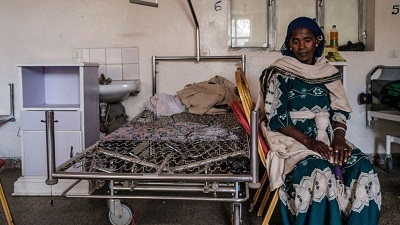
With the Ethiopian government’s relationship with the US and European Union (EU) at a low ebb, it is looking elsewhere for new allies to crush the rebellion being waged against it from the mountainous Tigray region.
Both the US and EU have threatened sanctions on the government and its arch-enemy, the Tigray People’s Liberation Front (TPLF), in a bid to press them into ending the almost year-long conflict that some fear could be as devastating as the civil war that led to the break-up of Yugoslavia.
Kjetil Tronvoll, a professor in conflict studies at the Oslo New University College in Norway, said this has led to the government’s focus shifting.
“The Ethiopian government feels that it can do without the West – that it can obtain weapons from Iran, Turkey and China, soft loans from Saudi Arabia and the United Arab Emirates, and political protection from Russia and China,” he said, pointing out that the latter two had already blocked the United Nations (UN) Security Council from agreeing on a resolution on the civil war.
He added that while there was no official confirmation, there were credible reports that the Ethiopian military had obtained Iranian and Turkish-manufactured drones to carry out strikes in Tigray in the hope of tilting the war in its favour.
Canada-based Ethiopia analyst Ann Fitz-Gerald said she was concerned by US and EU moves to take “punitive measures” against the government.
“The international community should be standing by the legitimate government of Ethiopia, and all three regions [Tigray, Amhara and Afar] affected by the conflict. It should call out the TPLF’s atrocities, and call on it to lay down arms,” she said, adding that there was also a need for the government to communicate more clearly and regularly.
Prof Tronvoll said the EU and US had seen Prime Minister Abiy Ahmed as a “close strategic partner” when he took office in 2018, and regarded Ethiopia as a “lynchpin of security” in a region that was close to the shipping routes of the Red Sea, a hot-bed of militant Islamist activity, and a major source of migration to Europe.
“Their relationship deteriorated after the war started. The US and EU became increasingly critical of government atrocities, and the famine-like conditions in Tigray,” Prof Tronvoll added. -BBC






